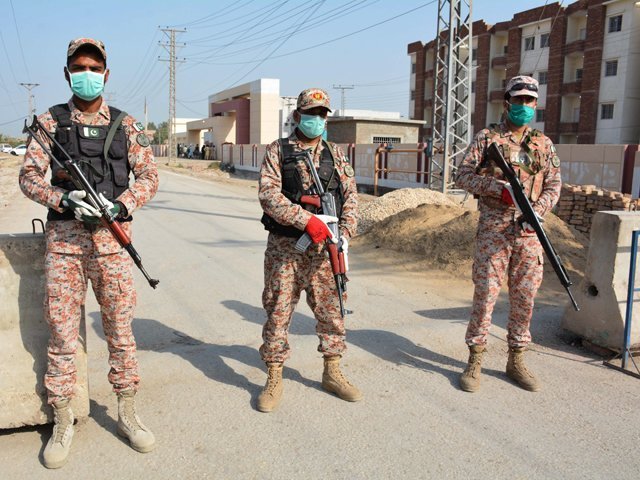ISLAMABAD: The Ministry of Interior announced fresh restrictions across the country on Tuesday, which includes a complete ban on tourism from May 8-16 as 142 more people lost their lives and 4,400 contracted the contagion in just the last 24 hours.
A meeting of the National Command and Operation Centre (NCOC) was held Tuesday where important decisions were taken by the body. A press release issued by the ministry announced that the NCOC had decided to ban tourism from May 8-16.
“Closure of tourist resorts, public parks and hotels in/around tourist spots will remain closed,” reads the press release. The NCOC announced ban on inter-provincial and inter-city transport will also remain during the Eid holidays however, the people of Gilgit-Baltistan will be allowed to travel back to their areas during the holidays.
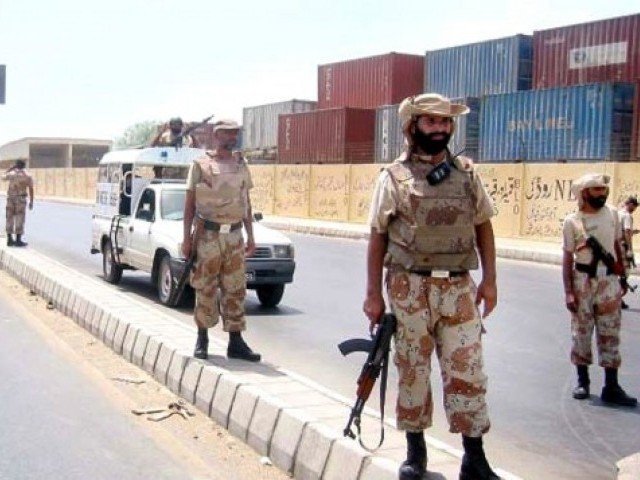
The Interior Ministry said all tourist resorts, public parks, hotels, restaurants, shopping malls and transport will also remain closed for the public. “Travel nodes leading to tourist spots (will also remain) closed; focus on (the areas of) Murree, Galiyat, Swat-Kalam, Sea View/beaches and the Northern Areas (will remain),” stated the press release.
The NCOC had decided that a continuous supply of electricity during the Eid will be provided to the masses. Like other government officials who have spoken on the matter recently, the SAPM on Health Dr Faisal Sultan once again warned that a lockdown could be imposed in different cities if the coronavirus situation does not improve.
The prime minister’s aide on health said the NCOC reviews the coronavirus situation daily and receives an update on the situation of the health system in various cities. He added that the healthcare system’s capacity was increasing daily.
Regarding oxygen supply, he said that a committee of the NCOC is monitoring oxygen distribution and the plants producing the vital gas. He added that the government can also import oxygen from various countries if need be.
Meanwhile, Pakistan recorded over 4,400 new coronavirus infections in the last 24 hours, taking the total tally to 804,939 on Tuesday. According to the government’s database for tracking the spread of coronavirus, Pakistan conducted 43,981 COVID-19 tests out of which 4,487 returned positive.
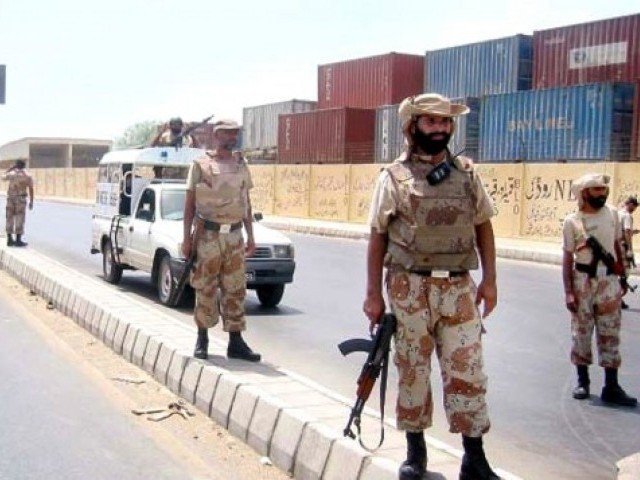
With 142 new fatalities, the total coronavirus death toll in Pakistan has reached 17,329. The highest death toll in the last 24 hours was reported in Punjab, which saw 107 new deaths. The country’s average positivity rate has risen to 10.2 percent with 87,794 active cases, while the number of recoveries nationwide has reached 699,816 so far.
Keeping in view the alarming increase in corona deaths and infections, the Punjab government has imposed stricter lockdown restrictions from 6:00pm till Sehr in weekdays besides declaring weekends as closed days with immediate effect in all districts of the province.
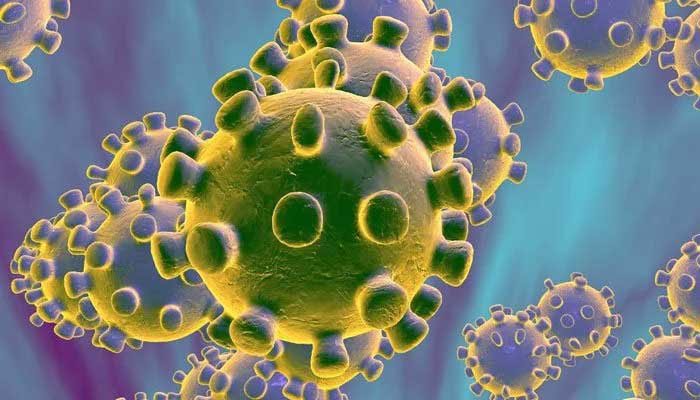
According to a notification issued by Primary and Secondary Healthcare Department (P&SHD), Punjab, the lockdown will remain effective till May 17, ensuring closure of all commercial activities, establishments and areas by 6:00pm on weekdays and complete closure on weekends across the province.
Whereas indoor wedding functions and indoor/outdoor dining in restaurants is banned throughout the province, the outdoor marriage functions shall remain banned and shrines/mazaars closed in 20 districts with 8 percent or above positivity rate including Lahore, Faisalabad, Sargodha, Rawalpindi, Rahim Yar Khan, Gujranwala, Multan, Bahawalpur, Bhakkar, Kasur, Sheikhupura, Dera Ghazi Khan, Jhang, Okara, Khanewal, Mandi Bahauddin, Narowal, Sialkot, Sahiwal and Vehari.
All types of marriage halls, community centres, marquees and event halls shall remain closed, while only takeaway/home delivery shall be allowed at restaurants throughout the province. Meanwhile, Lahore Police along with district government teams as well as contingents of Pakistan Army and Rangers continuously carried out flag march for the second day in different areas of the city on Tuesday.
Meanwhile, the federal government finally announced cancellation of all examinations in the country, including O and A level ones, over a spike in coronavirus incidence. “No examinations will take place in the country until June 15. The O and A level exams have been cancelled and they will now take place in October and November,” Education Minister Shafqat Mahmood told reporters here on Tuesday following a meeting of the NCOC.
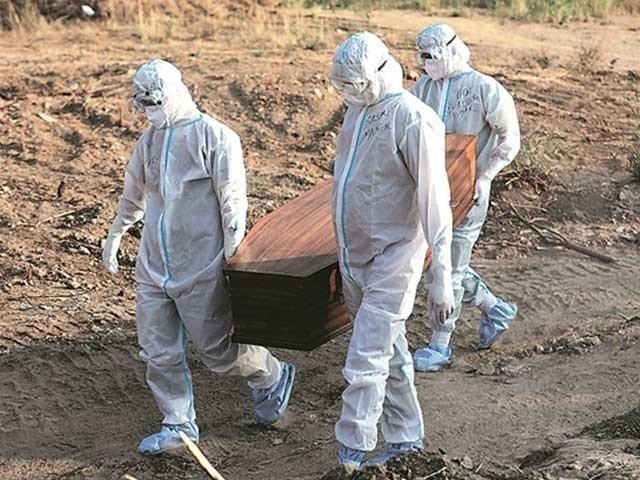
The development comes following calls from students, activists and politicians for cancelation of the Cambridge exams over the growing cases and deaths by coronavirus in the country. The minister said the last NCOC meeting on April 18 had decided that exams would take place as scheduled but afterward, the COVID-19 rate increased significantly.
“The country seems to be headed towards a complete lockdown in areas witnessing high virus positivity rate, so one of the decisions we took today through consensus was that all exams from today till June 15 will be cancelled,” he said.
Shafqat Mahmood said all board exams for grades 9, 10, 11, 12 that were to begin late May would be postponed. He said the government would continue to monitor the situation. “In the third week of May, we will reassess if a further deferment is in order or if we can hold them at that time, so if exams take place after June 15, they may continue in July and even August,” he said.
About the Cambridge exams, the minister said the students of O Level would have to sit the exams in the October/November session and the same would apply to AS and A Level students.
He said certain A Level students, who were in the second year of A Level (A2) and totalled around 20,000, would suffer if the exams were delayed as their progress would be delayed by a year and so.
“For their (such students’) facilitation, exams will be held in the current session as well,” he said. Shafqat Mahmood said students won’t have to pay extra for sitting the October/November exams.
He said for the ease of students seeking admission to universities, the application deadlines would be extended to January so that students had no problems in applying after appearing for exams late. The minister said in future, no exam centre would have more than 50 students and law-enforcement agencies would be deployed there to prevent crowds outside those places.


